Overview
The article titled “10 Key News About Pharmaceutical Industry Trends for 2025” emphasizes the emerging trends and innovations poised to reshape the pharmaceutical industry by 2025. It underscores the importance of leveraging:
- Data analytics
- Generative AI
- Personalized medicine
- Sustainability practices
- Telemedicine
These elements are vital for enhancing drug development, refining market access strategies, and improving patient engagement. The article indicates that these factors will be crucial for companies aiming to remain competitive and improve health outcomes in an evolving landscape.
Introduction
In the rapidly evolving landscape of the pharmaceutical industry, data-driven strategies have become essential for success. Companies are increasingly turning to innovative solutions that harness the power of comprehensive Medicare data insights, generative AI, and personalized medicine. These advancements are pivotal in enhancing patient outcomes and streamlining drug development.
As the demand for sustainable practices and effective mental health therapies rises, the industry is witnessing a transformative shift that underscores the importance of technology and strategic partnerships.
This article delves into the latest trends and innovations shaping the future of pharmaceuticals, exploring how organizations can adapt to meet the challenges of tomorrow while prioritizing patient care and regulatory compliance.
CareSet: Empowering Pharmaceutical Strategies with Comprehensive Medicare Data Insights
CareSet leads the charge in healthcare analytics, delivering essential insights to drug companies derived from over $1.1 trillion in annual Medicare claims. By meticulously analyzing treatment patterns, provider networks, and demographic data, CareSet enables clients to pinpoint new healthcare provider targets and refine their market access strategies. This evidence-based methodology not only bolsters strategic initiatives but also significantly enhances health outcomes by aligning medical products with actual treatment practices.
Emerging trends indicate that leveraging Medicare claims information is becoming increasingly critical for drug strategies in 2025. Companies that emphasize comprehensive market access strategies throughout the product lifecycle are positioned to achieve sustainable and profitable results. Often, the window of opportunity is quite limited, underscoring the urgency for timely market access strategies. Furthermore, archetype-specific factors have proven to improve the efficiency of these strategies, particularly in the analysis of Medicare information, emphasizing the importance of tailored approaches in navigating the complexities of the healthcare landscape.
As the pharmaceutical industry continues to evolve, news about the pharmaceutical industry gained from Medicare information analysis will be crucial in shaping effective market access strategies, ultimately enhancing patient care and optimizing the lifecycle management of medicinal products. The case study titled ‘Market Access as a Launch Driver’ demonstrates that prioritizing market access throughout the product lifecycle is vital for achieving sustainable and profitable outcomes. CareSet’s groundbreaking data science products further amplify these strategies, equipping healthcare stakeholders with comprehensive insights from over 62 million beneficiaries and 6 million providers.
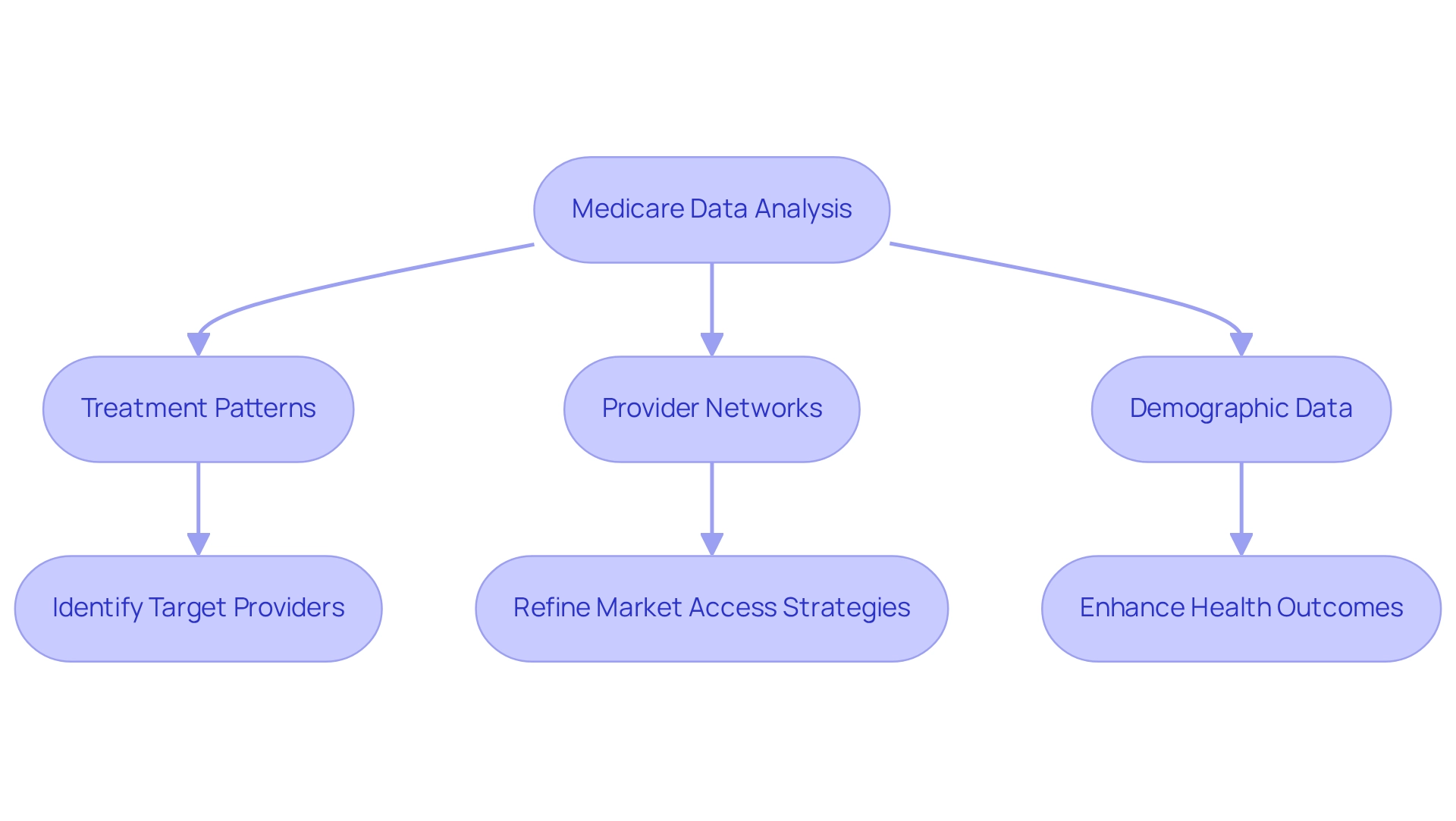
Generative AI in Pharmaceuticals: Transforming Drug Development and Research
Generative AI is poised to lead 30% of new drug discoveries by 2025, heralding a transformative era in medical research that significantly reduces costs and accelerates the development of personalized treatments. By harnessing advanced algorithms, pharmaceutical companies can enhance drug design, optimize clinical trial protocols, and more accurately predict individual responses. This groundbreaking technology not only expedites the research process but also facilitates the creation of more effective treatments tailored to individual needs. Consequently, the integration of generative AI is anticipated to yield substantial cost savings in drug development, with projections indicating a reduction of up to 50% in specific research phases.
Looking ahead to 2035, experts foresee a scenario where human cognition may struggle to keep pace with artificial intelligence, underscoring the transformative potential of AI in drug discovery. Industry leaders increasingly acknowledge the advantages of AI-driven methodologies, with many reporting enhanced efficiency and effectiveness in drug discovery processes. Notably, organizations such as Pfizer and Roche are already adopting AI technologies to refine their research pipelines, illustrating the concrete benefits of this evolution.
The collaboration between the FDA and CMS underscores the necessity for improved coordination to harmonize regulatory approval and reimbursement processes for innovative therapies. Enhanced collaboration could facilitate access to these therapies, ensuring that the evidence required for both approval and reimbursement aligns with the needs of manufacturers and patients alike.
Nevertheless, as Timnit Gebru from the Distributed AI Research Institute cautions, there exists a genuine risk of institutionalizing discrimination through AI technologies. It is essential to be transparent about the error rates associated with these systems. The news about the pharmaceutical industry indicates that the impact of generative AI on drug research and costs in 2025 will be profound, reshaping how new treatments are developed and delivered to patients. Pharmaceutical market access managers should strategically consider how to leverage generative AI in their approaches to navigate this evolving landscape effectively.
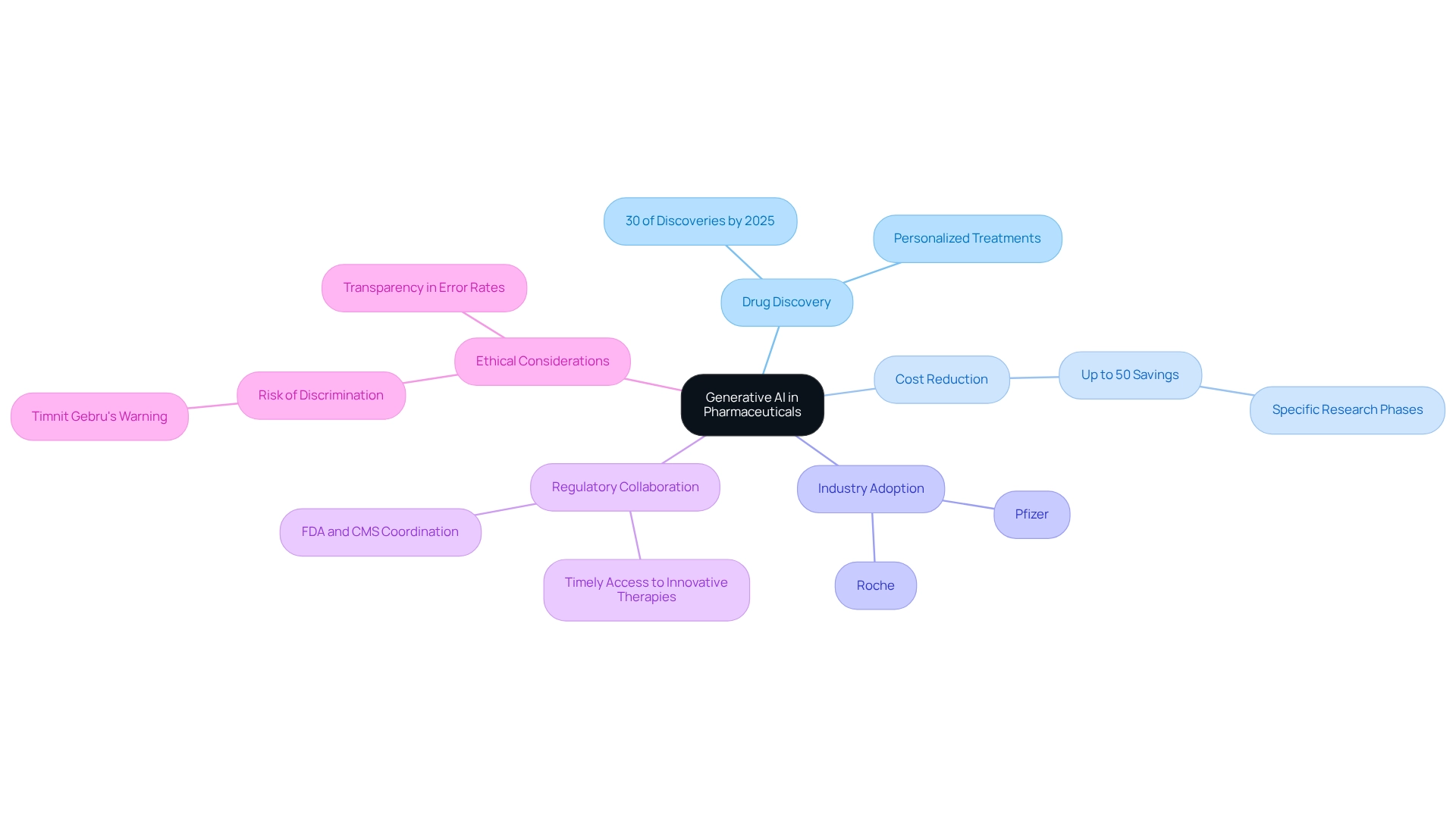
Personalized Medicine: Tailoring Treatments to Individual Patient Needs
The personalized medicine market is poised to reach an impressive $1 trillion by 2033, driven by significant breakthroughs in genomics and bioinformatics. This innovative approach empowers healthcare providers to customize treatments based on an individual’s genetic profile, lifestyle, and preferences, ultimately enhancing efficacy and minimizing adverse effects.
With seventy million Baby Boomers currently or soon to be over age 60 seeking healthier, more productive lives, the demand for personalized medicine has never been more pertinent. News about the pharmaceutical industry highlights how companies are increasingly embracing personalized strategies, which not only improve individual engagement and satisfaction but also foster better health outcomes.
Key industry players, including Illumina Inc. and Genentech, Inc., are leading the charge in these advancements, underscoring the transformative potential of personalized medicine. Recent progress in genomic research underscores the importance of tailoring treatments, with studies indicating that personalized approaches can significantly enhance outcomes for individuals.
For example, CareSet’s innovative data science products seamlessly integrate Medicare data and genomic information into treatment plans, showcasing promising results across various clinical settings and emphasizing the potential for improved therapeutic effectiveness.
As the industry advances, the emphasis on personalized medicine is likely to redefine treatment paradigms, establishing it as a cornerstone of modern healthcare. A recent clinical trial initiated by the National Cancer Institute, which explores precision medicine treatment for IDH-mutant brain tumors, exemplifies the ongoing advancements in this field.
However, empirical research reveals that genomic information does not significantly alter individuals’ perceptions of control or health behaviors, highlighting challenges that require attention. Overall, the integration of personalized medicine into healthcare signifies a transformative shift towards more effective and individualized patient care.
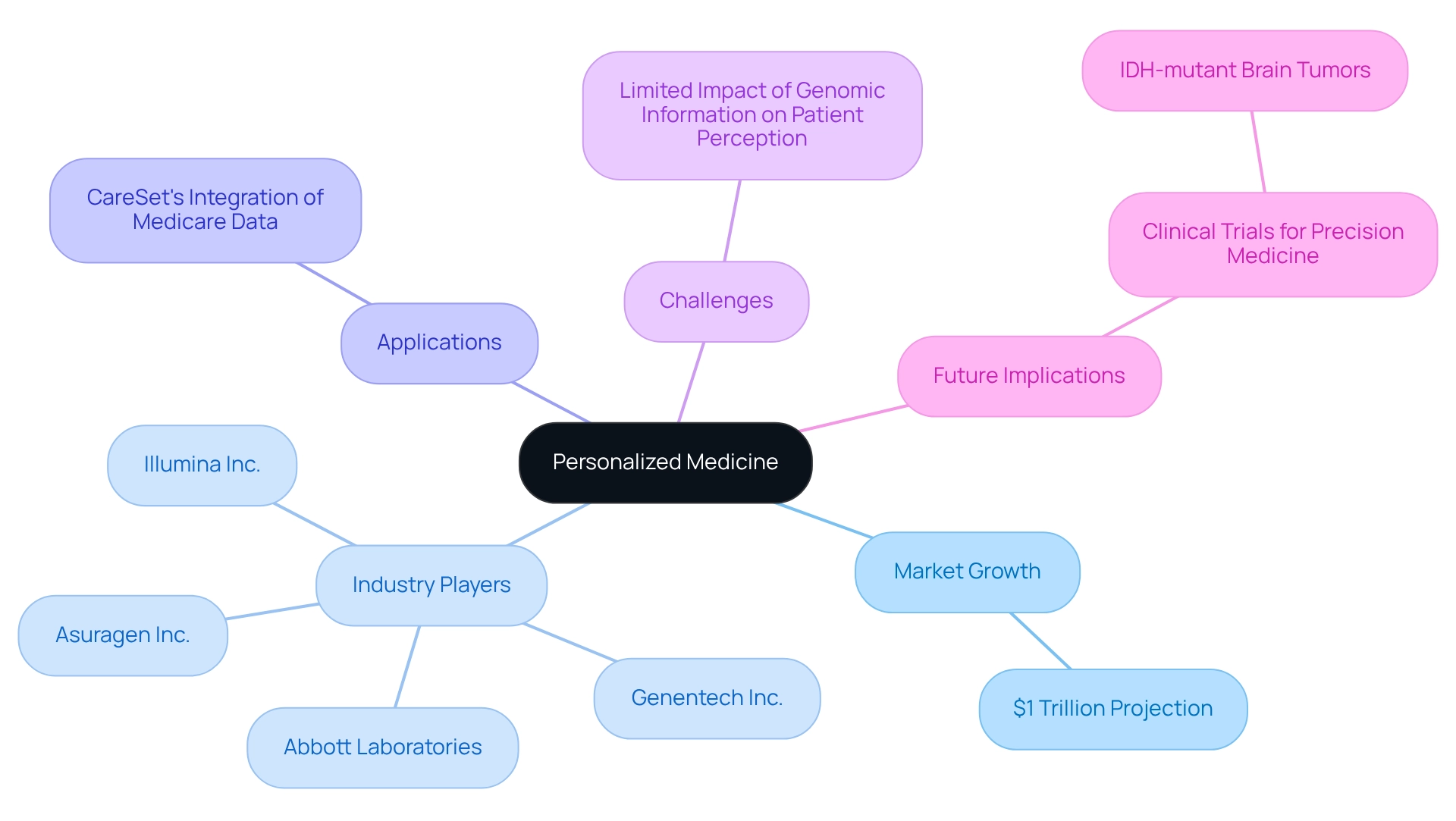
Sustainability in Pharma: Adopting Eco-Friendly Practices for Future Growth
Pharmaceutical firms are increasingly adopting sustainable practices to mitigate their environmental impact. Initiatives such as achieving carbon neutrality, reducing waste, and utilizing eco-friendly packaging have become integral to their operations. By embedding sustainability within their business frameworks, these organizations not only meet regulatory obligations but also significantly enhance their brand image among environmentally conscious consumers. This strategic shift is projected to drive long-term growth and resilience in the industry, as firms prioritizing eco-friendly practices are likely to experience improved lifecycle management of their products and stronger market positioning.
For instance, organizations that implement comprehensive sustainability strategies demonstrate enhanced decision-making capabilities and a more favorable public image, ultimately leading to increased consumer trust and loyalty. As Supratim Majumdar notes, balancing social and stakeholder responsibility is essential, aligning with the growing emphasis on sustainability. Furthermore, CareSet’s groundbreaking analytics solutions, recently unveiled, empower pharmaceutical and biotech firms by providing extensive Medicare insights that refine drug launch strategies and lifecycle management. These products particularly advocate for sustainable practices by integrating insights from over 100 external information sources, enabling organizations to make informed choices that align with their sustainability objectives.
By addressing critical informational needs and fostering long-term strategic growth, CareSet positions its partners in the healthcare sector to maintain a competitive edge as they advance. The integration of sustainability will be pivotal in cultivating enduring relationships with stakeholders.
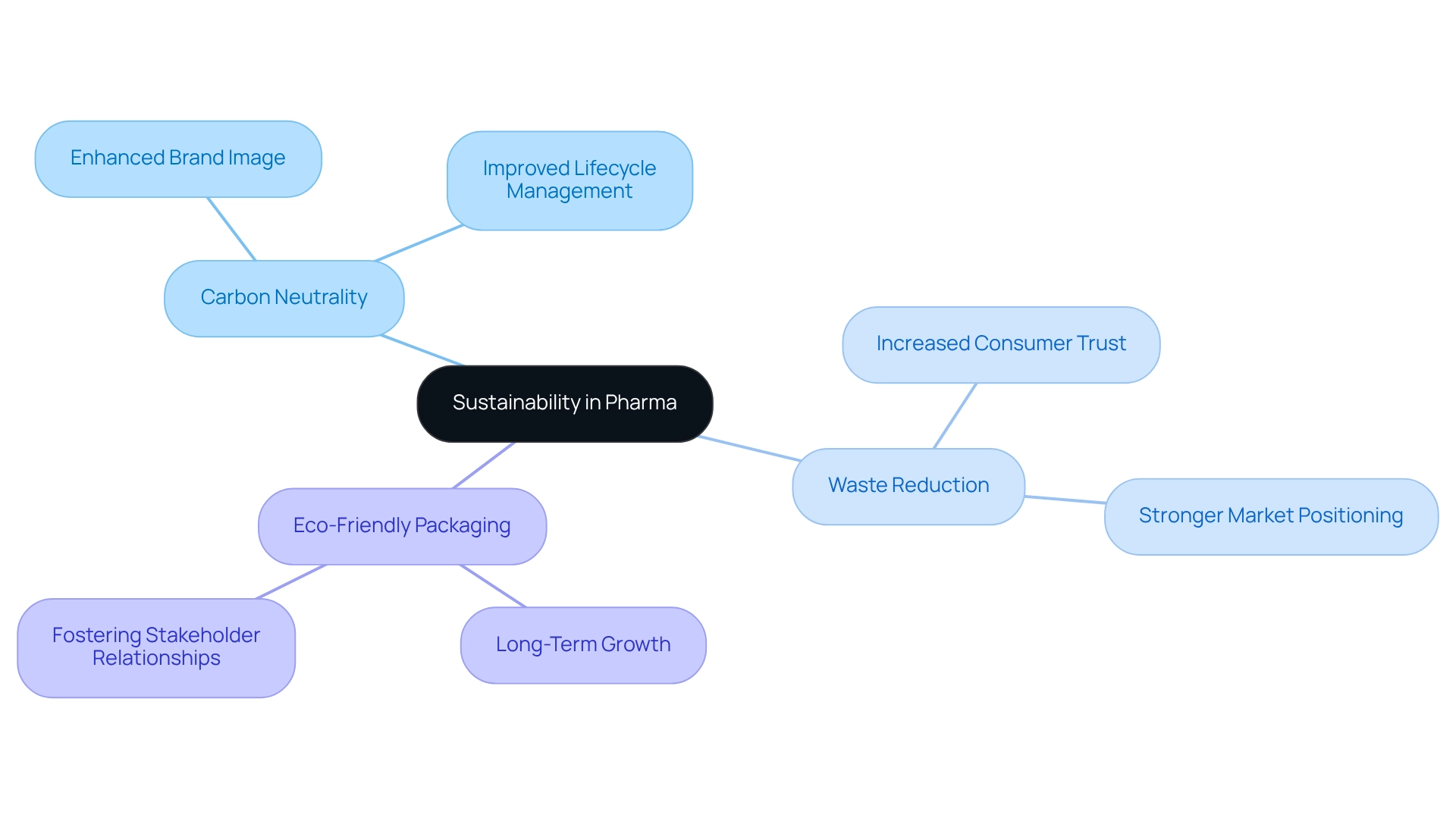
Real-World Evidence: Enhancing Clinical Trials with Practical Insights
Real-world evidence (RWE) is increasingly recognized as a crucial element in the drug development process. By utilizing data gathered from standard clinical practice, businesses in the healthcare sector can acquire valuable insights into treatment effectiveness, patient adherence, and long-term outcomes. This approach not only enhances the design of clinical trials but also bolsters regulatory submissions by providing robust evidence of a drug’s performance in real-world settings.
Incorporating RWE can potentially save the drug industry up to $50 billion annually by decreasing dependence on conventional clinical trials, which frequently incur substantial expenses. A recent case study highlighted that the integration of RWE could significantly alleviate the financial burden associated with extensive clinical trials by streamlining processes and reducing the need for multiple phases of traditional trials. This not only cuts costs but also accelerates the time to market for new therapies.
Moreover, industry leaders emphasize that utilizing RWE allows for refined clinical trial designs, ultimately increasing the likelihood of success. As one industry expert noted, “By incorporating RWE, biotech consulting firms and pharma consulting firms can refine their clinical trial designs, ultimately increasing the likelihood of success.” As pharmaceutical companies continue to adopt RWE strategies, the news about the pharmaceutical industry indicates that the importance of these insights in clinical trials will only grow, shaping the future of drug development and approval processes.
CareSet’s innovative information science products, including features such as advanced analytics and real-time integration, empower clients to enhance their strategic initiatives based on actionable insights derived from RWE. These products leverage comprehensive Medicare data solutions that encompass insights from over 62 million beneficiaries and 6 million providers. This further reinforces the significance of RWE in the pharmaceutical landscape, ensuring that new therapies address the requirements of individuals and healthcare providers alike. Testimonials from clients highlight the transformative impact of CareSet’s solutions, reinforcing their value in driving data-driven success.
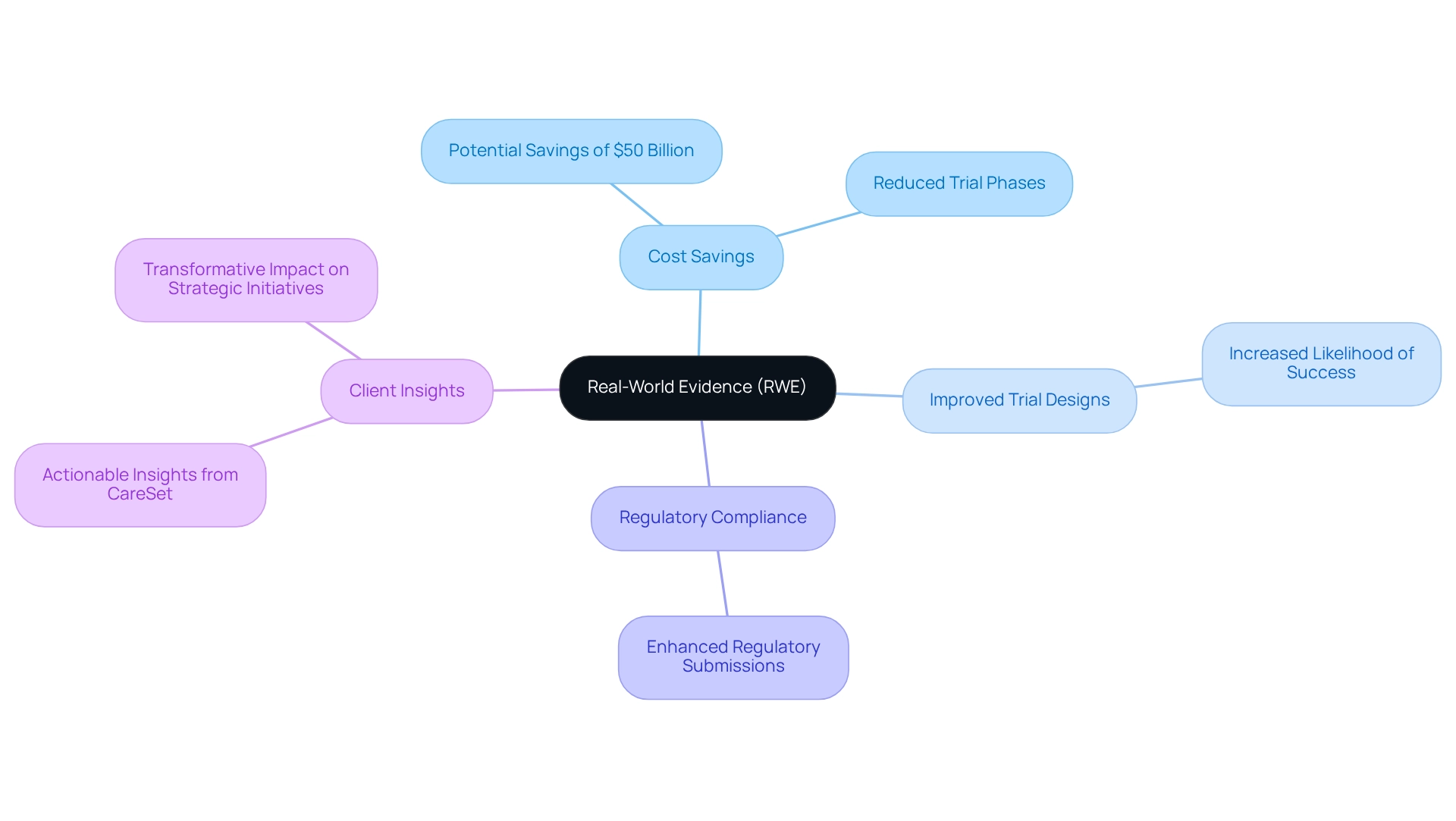
Digital Health Technologies: Revolutionizing Patient Engagement and Monitoring
Digital health technologies, encompassing telemedicine, mobile health applications, and wearable devices, are fundamentally transforming user engagement and monitoring. These innovations facilitate real-time communication between individuals and healthcare providers, allowing for timely interventions and personalized care. As individuals increasingly take charge of their health, the news about the pharmaceutical industry shows that companies must evolve their strategies to integrate these technologies, ensuring they effectively address the changing needs of their clientele.
The growth of telemedicine has significantly influenced client engagement, enabling more accessible healthcare delivery. However, complicated policies and regulations may hinder the implementation of telemedicine services, presenting challenges that must be navigated. As we look towards 2025, the trend of incorporating design thinking into healthcare prioritizes patient-centricity, innovation, and adaptability, preparing systems to meet future challenges. This shift is evident in the increasing use of mobile health applications, which enhance user engagement by offering tools for self-monitoring and communication. For instance, 17% of individuals now utilize smartwatches to monitor their stress levels, reflecting a broader trend towards proactive health management.
Furthermore, strategic alliances within the engagement software market are on the rise, as major players collaborate to empower individuals and enhance healthcare outcomes. The case study titled “Market Trends Analysis: Rise in Strategic Deals” emphasizes how these alliances are transforming the landscape by promoting collaboration between individuals and healthcare providers, ultimately improving the effectiveness of treatment strategies.
In this evolving environment, CareSet Systems’ groundbreaking data science products, which encompass advanced analytics and predictive modeling, provide extensive Medicare data insights that help drug and biotech firms access news about the pharmaceutical industry. By leveraging insights from over 62 million beneficiaries and 6 million providers, CareSet empowers stakeholders to make data-driven decisions that enhance drug launch strategies and improve healthcare outcomes, informed by the latest news about the pharmaceutical industry. These products specifically tackle the challenges presented by telemedicine by offering actionable insights that assist companies in customizing their engagement strategies to fulfill individual needs effectively.
Expert insights indicate that the future of telemedicine in the news about the pharmaceutical industry will depend on the integration of digital health technologies, which are anticipated to play a vital role in engaging individuals. As Dr. Ateev Mehrotra notes, innovations that facilitate instantaneous access to care are invaluable, making healthcare more accessible than traditional methods. This underscores the significance of digital health technologies in enhancing access to care for individuals.
In summary, the impact of digital health technologies on individual engagement is profound and multifaceted, with telemedicine and mobile health applications leading the charge in transforming healthcare delivery. As these technologies continue to advance, they will undoubtedly influence the future of consumer interaction, as highlighted in the news about the pharmaceutical industry. To maintain a competitive edge, healthcare organizations should proactively pursue the integration of these innovations, including CareSet’s comprehensive data solutions, into their strategies, ensuring they address the changing needs of patients.
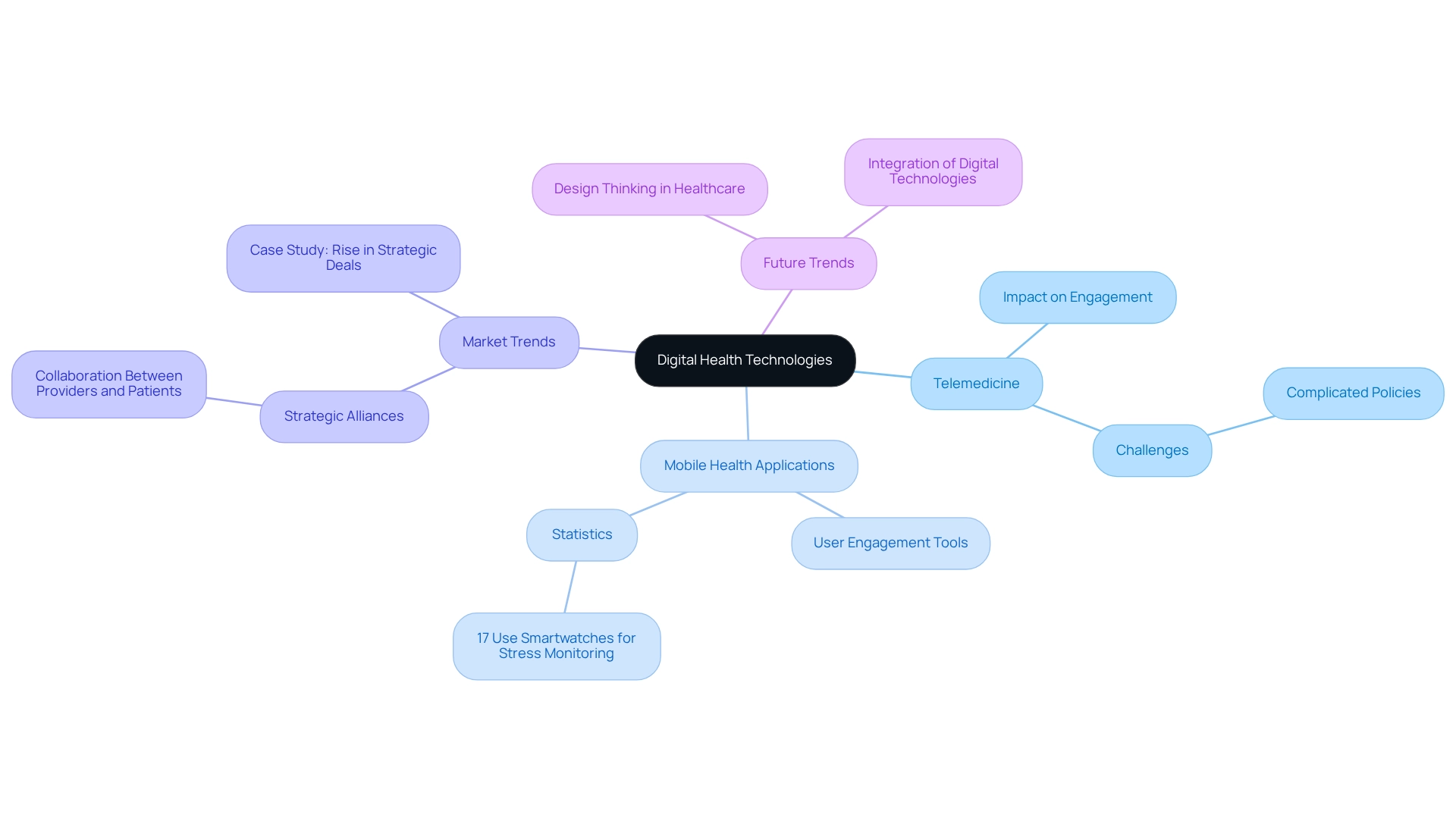
Evolving Regulatory Landscape: Navigating Increased Scrutiny in Pharma
The pharmaceutical industry is navigating a landscape marked by heightened scrutiny from regulatory bodies, making it essential to stay updated with the latest news about the pharmaceutical industry to ensure a proactive approach to compliance. In 2025, new regulations focusing on drug pricing, safety, and efficacy will be introduced, generating significant news about the pharmaceutical industry and urging firms to enhance their compliance strategies. This shift is not merely a response to regulatory demands; it is essential for ensuring successful product development and market access while preserving public trust in the context of news about the pharmaceutical industry, particularly regarding the recent changes in drug pricing regulations that directly influence market access strategies.
According to news about the pharmaceutical industry, firms must adjust to these regulations to sustain competitive positioning and ensure that their products effectively reach consumers. Expert opinions in the news about the pharmaceutical industry highlight that a robust compliance framework is critical in this environment, with many leaders emphasizing the need for comprehensive training programs. Notably, 41% of industry leaders have identified employee training on compliance as a key focus for the upcoming year, reflecting a growing recognition of the importance of fostering a culture of compliance within organizations.
Furthermore, news about the pharmaceutical industry reveals a significant trend: the number of AI-based drug discovery alliances surged from 10 in 2015 to 105 in 2021, showcasing the industry’s shift towards innovative solutions that can streamline compliance and enhance drug development timelines. Sarah Lee observes that the worldwide market for AI in clinical trials is anticipated to expand at a CAGR of 22.1% from 2023-2028, achieving $4.9 billion by 2028, with management applications constituting the largest segment. This growth underscores the significance of digital transformation in enhancing compliance strategies and managing regulatory complexities, as highlighted in the news about the pharmaceutical industry.
Moreover, digital transformation is poised to play a crucial role in boosting sales and patient outcomes as organizations utilize technology to handle regulatory complexities more efficiently. CareSet Systems’ innovative information science products are crafted to empower drug and biotech firms with actionable insights, particularly through comprehensive Medicare information solutions. By incorporating these digital tools into their compliance strategies, drug companies can strengthen their capacity to respond to regulatory changes and enhance overall operational efficiency, especially in response to the news about the pharmaceutical industry.
By embracing compliance strategies that integrate the latest regulatory changes and leveraging CareSet’s data insights, they can not only mitigate risks but also stay ahead by utilizing news about the pharmaceutical industry to position themselves for long-term success in a competitive market.
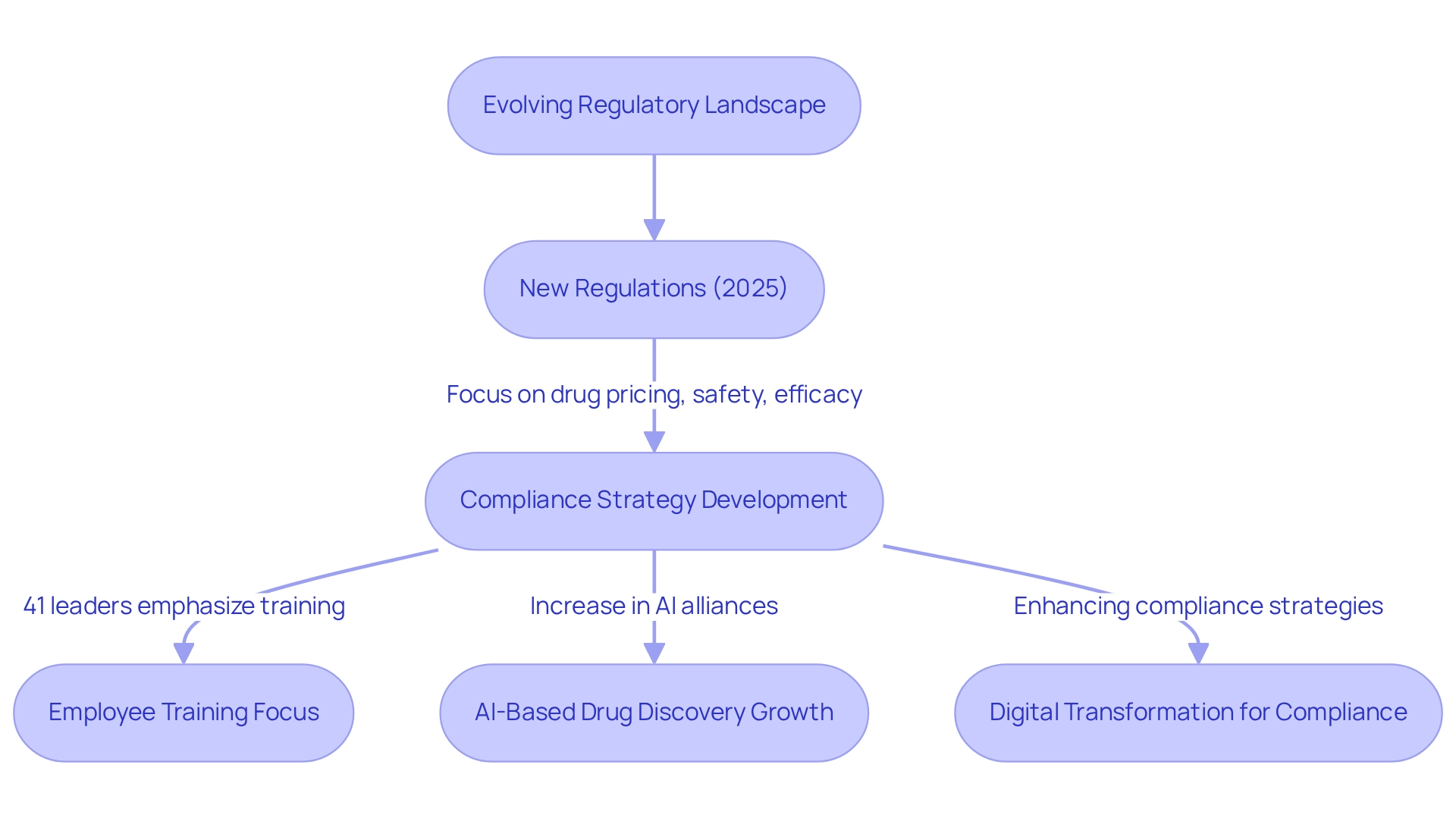
Telemedicine: Reshaping Healthcare Delivery in the Pharmaceutical Industry
Telemedicine has emerged as a transformative force in healthcare delivery, providing individuals with convenient access to medical services and reshaping the medication landscape. The news about the pharmaceutical industry highlights how integrating telehealth solutions can significantly enhance engagement with individuals, leading to improved medication adherence and more efficient clinical trials. In 2025, the impact of telehealth on client engagement is projected to be substantial, with studies indicating that telemedicine can boost adherence rates by as much as 30%, as individuals benefit from more accessible consultations and follow-ups.
Pharmaceutical firms are leveraging telemedicine to connect with individuals in innovative ways. For instance, organizations are utilizing telehealth platforms to conduct virtual clinical trials, which not only accelerates the research process but also broadens participant demographics, ensuring diverse representation. This approach is exemplified by BioTelemetry’s implementation of a comprehensive Data Lake and Data Warehouse solution, which enhanced their data management capabilities and enabled real-time monitoring of individuals, showcasing how technology can improve engagement in clinical settings. Furthermore, CareSet Systems’ new data science products can bolster these telehealth initiatives by providing actionable insights derived from Medicare data. These insights can aid drug companies in gaining a deeper understanding of treatment pathways and refining their engagement strategies, ultimately leading to better outcomes, as indicated by the news about the pharmaceutical industry regarding current trends in telemedicine, which include the rise of remote monitoring tools and mobile health applications that empower individuals to manage their health proactively. As the focus on digital infrastructure and preventive healthcare intensifies, the news about the pharmaceutical industry shows that these technologies are becoming essential for drug firms aiming to foster improved health outcomes. Expert insights suggest that integrating telehealth solutions into drug strategies is crucial for maintaining competitiveness in the evolving healthcare landscape. As Dr. Aashish Chaudhry, Managing Director of Aakash Healthcare, emphasizes, the expansion of telemedicine services is vital for enhancing healthcare delivery and care for individuals, highlighting the imperative for pharmaceutical firms to adapt to these changes.
In summary, the integration of telemedicine not only addresses urgent healthcare needs but also positions pharmaceutical companies for success in a rapidly changing environment, ultimately resulting in improved outcomes and satisfaction for individuals.
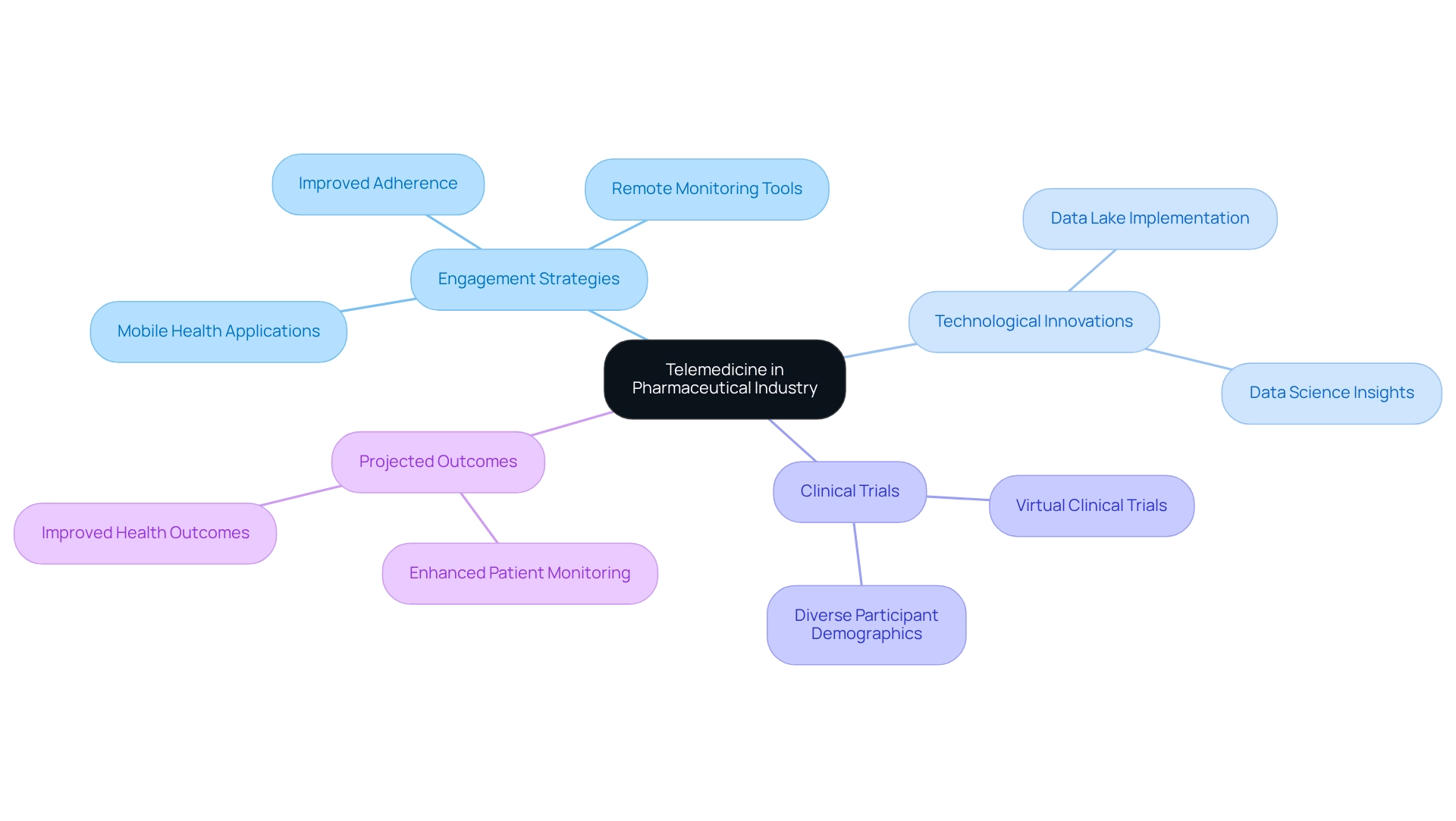
Mental Health Innovations: Addressing the Growing Demand for New Therapies
The demand for innovative mental health therapies is surging, driven by an increasing recognition of mental health issues and the urgent need for effective treatments. The recent news about the pharmaceutical industry reveals that companies are significantly ramping up their investments in research and development to create new medications and therapies targeting conditions such as depression, anxiety, and schizophrenia. This emphasis on mental health innovations is crucial for addressing individual needs and improving overall health outcomes.
Current statistics reveal that postpartum depression rates exceed the national average of 13% in several rural states, with alarming figures of 21% in Alabama, 22% in Mississippi, and 23% in Arkansas. Such data underscores the critical need for tailored mental health solutions, particularly in underserved areas.
Case studies, such as the one addressing youth suicide risk in rural areas, highlight the urgent gaps in mental health services. Rural youth face heightened suicide risks; yet, many regions lack adequate prevention resources. This situation calls for increased investment in mental health initiatives and innovative therapies designed specifically for these populations. The need for change is echoed by Norah Vincent, who emphasizes personal readiness for change as a crucial factor in addressing mental health challenges.
In the news about the pharmaceutical industry, leaders emphasize the importance of addressing mental health needs, with Jonathan Harnisch stating, ‘I keep moving ahead, as always, knowing deep down inside that I am a good person and that I am worthy of a good life.’ This perspective reinforces the moral imperative behind innovation in this sector. As the industry continues to evolve, the commitment to developing effective mental health therapies will play a pivotal role in shaping the future of healthcare and improving patient outcomes across diverse demographics.

Mergers and Acquisitions: Strategic Consolidation in the Pharmaceutical Sector
The healthcare industry is witnessing a notable surge in mergers and acquisitions as firms strive to consolidate resources and enhance their competitive edge. By 2025, M&A activity is projected to escalate, fueled by the pressing need for innovation and market expansion.
Through strategic collaborations with other enterprises, drug manufacturers can harness synergies, access cutting-edge technologies, and broaden their product offerings, ultimately positioning themselves for sustained success.
CareSet Systems’ pioneering data science products are pivotal in this environment, delivering comprehensive Medicare data insights that empower stakeholders to make informed decisions based on the news about the pharmaceutical industry throughout the pharmaceutical lifecycle.
These actionable insights not only refine drug launch strategies but also assist companies in navigating the complexities of the market, ensuring they stay competitive in an ever-evolving industry, as highlighted in the news about the pharmaceutical industry.

Conclusion
The pharmaceutical industry is undergoing a transformative shift, propelled by data-driven strategies and technological innovations. The integration of Medicare data insights, generative AI, and personalized medicine is vital for enhancing patient outcomes and streamlining drug development. CareSet’s analysis of Medicare claims data empowers companies to refine their market access strategies, aligning them with real-world treatment practices.
Sustainability has become increasingly important, as pharmaceutical companies adopt eco-friendly practices that not only enhance regulatory compliance but also bolster brand reputation. Moreover, digital health technologies and telemedicine are revolutionizing patient engagement, making healthcare more accessible and improving medication adherence.
As regulatory scrutiny intensifies, robust compliance strategies are essential for navigating this evolving landscape. Collaborations between industry leaders and regulatory bodies, coupled with advancements in AI and real-world evidence, will be crucial for addressing these challenges. By leveraging innovative data solutions, pharmaceutical companies can enhance their operational strategies and maintain competitiveness.
In conclusion, the future of the pharmaceutical industry hinges on the effective integration of technology, sustainability, and personalized care. Embracing these trends will enable organizations to thrive while prioritizing patient health and ensuring compliance in a rapidly changing environment. With strategic innovation and partnerships, the pharmaceutical sector is poised to improve health outcomes for patients.

